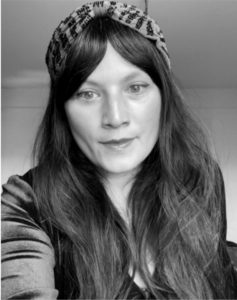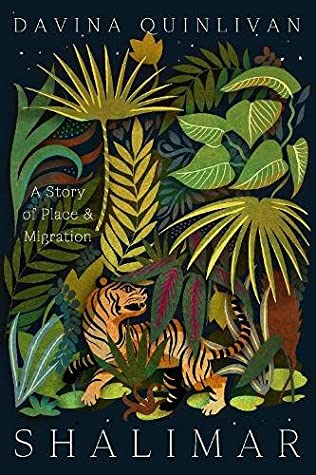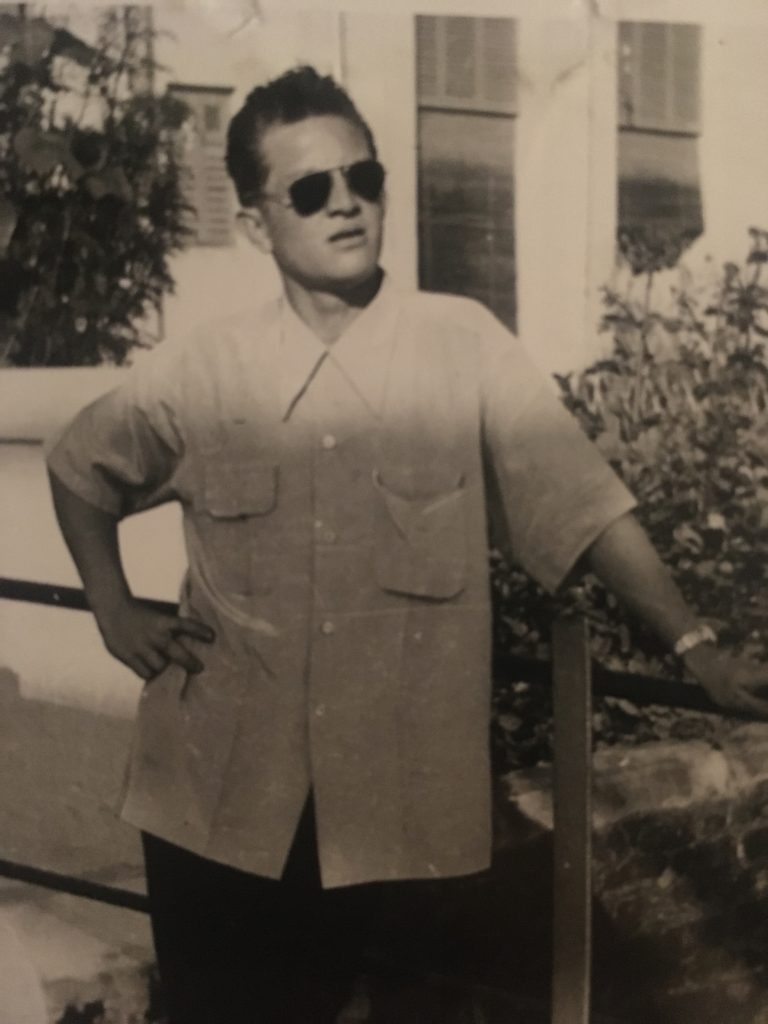Book Review – May 2022
Years on, the boy will think about the mangoes again when
his daughter is all grown up and he is seven decades old and
dying of cancer. He will know that his lungs are failing and
he is unable to cease the muddling of time and space, the
drifting through little corners of his unconscious. Waking
moments are gauzy vignettes fuelled by morphine. Childhood
memories swim up inside him like protective armour.
Davina Quinlivan is a writer and lecturer whose background embraces a rich cultural heritage. Her extended family melds together strands from Burma, India, Ireland, Germany, Portugal and the Shan hill people of South-East Asia. Shalimar explores the history of this family, comprising forebears from Europe and Asia, and takes us through to Quinlivan’s present life in rural Devon with her partner and children. At the heart of the book, ever present even after his death, is the writer’s father.
Do ghosts breathe?
Quinlivan’s father lived in Burma until he was 18. His own father was a senior executive in the Burmah Oil Company. When the Japanese invaded in 1942 the whole family was interned. This experience, though never acknowledged or discussed with Quinlivan or other members of the family, stayed with her father for the rest of his life. It left him with agoraphobic tendencies and he always felt more comfortable staying indoors and sticking to set routines.
Once the Japanese left Burma, Quinlivan’s father was able to return to school at a monastery near Rangoon. But he was expelled from there for stealing mangoes from the sacred orchard; a life-changing encounter with forbidden fruit. He was sent to an American boarding school in Darjeeling, India and spent his school holidays with his older sister and her husband in Shalimar, where the husband was an engineer at the Shalimar Paint Company. This was a happy time for Quinlivan’s father, despite an extended bout of illness with typhoid fever.
After school he moved to England and worked in a number of factory jobs before he secured a post as a warehouse manager. He also met Quinlivan’s mother and they lived together at a number of addresses in West London. The writer was born in London and the family eventually settled in Hayes.
Years later, while Quinlivan was studying for her PhD, her father became ill with cancer. She and her music teacher husband, Dylan, were living with her parents in their small home at this time. They decided that the right thing to do was for them to move out in order to give her father the quiet and stillness in his daily routine that he seemed to need. It was also, she realised later, her own way of coping with the impending bereavement.
To be near Dylan’s work, but not too far from London, they rented a studio flat in a large old house in rural Surrey. This was a major culture shock for a city girl like Quinlivan, but life in the countryside was something that she gradually came to appreciate and embrace.
At a social and political level Shalimar is about race, colonialism and migration. At a more personal level it is an exploration of the meaning of family and home. Like the rest of us, Quinlivan’s life is an outflowing of the influences of her family history. Unlike most of us, she is able to express this profound truth in achingly beautiful prose:
Even if you pull a tree out of the ground, its roots will have threaded through the other trees around it and will go on providing a scaffolding to the living systems it has dwelled within for years to come.
Quinlivan moves from house to house across rural southern England, seemingly in search of her true home. Finally she settles in Devon, having lost her father and started a family of her own along the way. Much of Shalimar flows along with a dream-like quality and Quinlivan’s tale is peppered with symbolic objects: birds, plants, fruit, a bracelet of pigeons-blood rubies. She is a writer and lecturer about film and there is, indeed, a visual, cinematic quality to Quinlivan’s descriptions of people and places.
Shalimar is a fairly short book, but is by no means a flimsy one. Indeed, the story that Qunlivan tells lives on in the memory long after having read it. Her descriptions, and the places and people that she evokes, haunt one’s imagination.
Davina Quinlivan
 Davina Quinlivan is the author of several books on cinema. She has taught at Kingston School of Art for over a decade and is a regular lecturer at The Freud Museum. She lives in Devon, with her family.
Davina Quinlivan is the author of several books on cinema. She has taught at Kingston School of Art for over a decade and is a regular lecturer at The Freud Museum. She lives in Devon, with her family.


